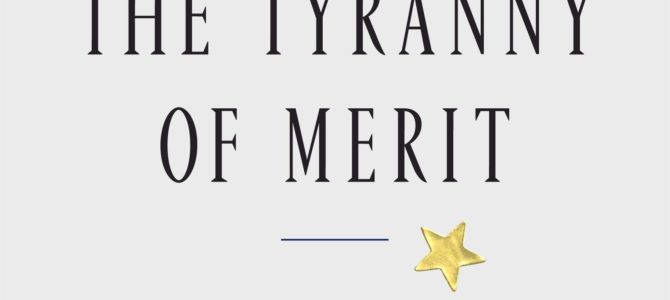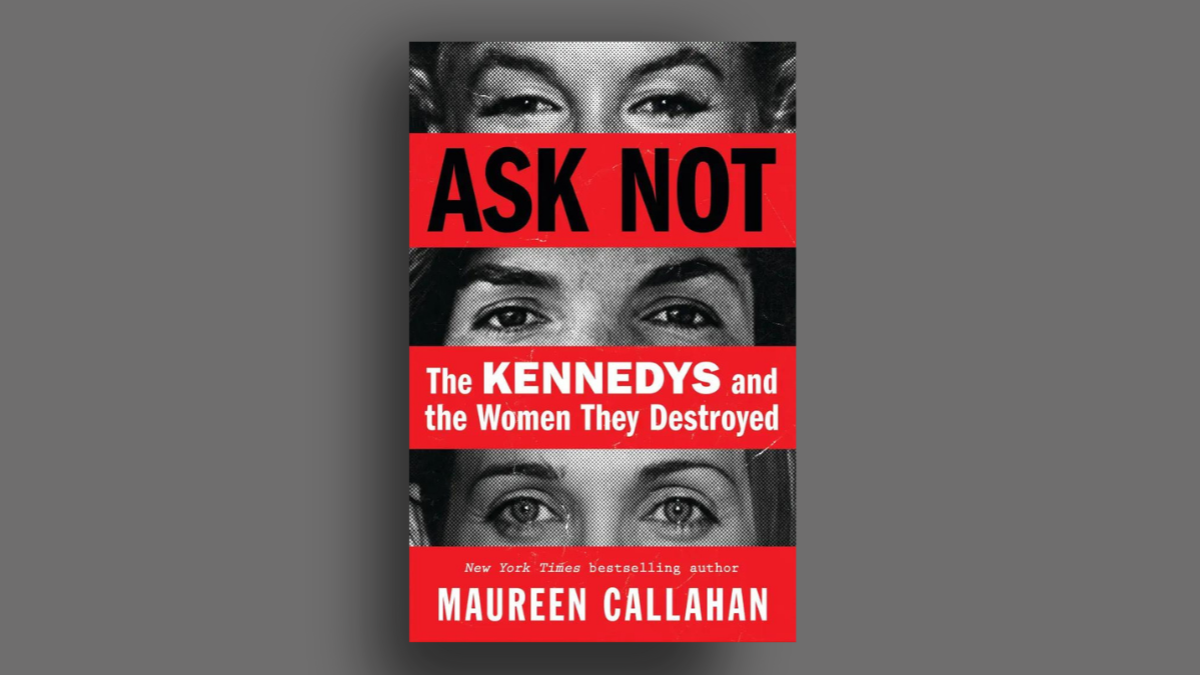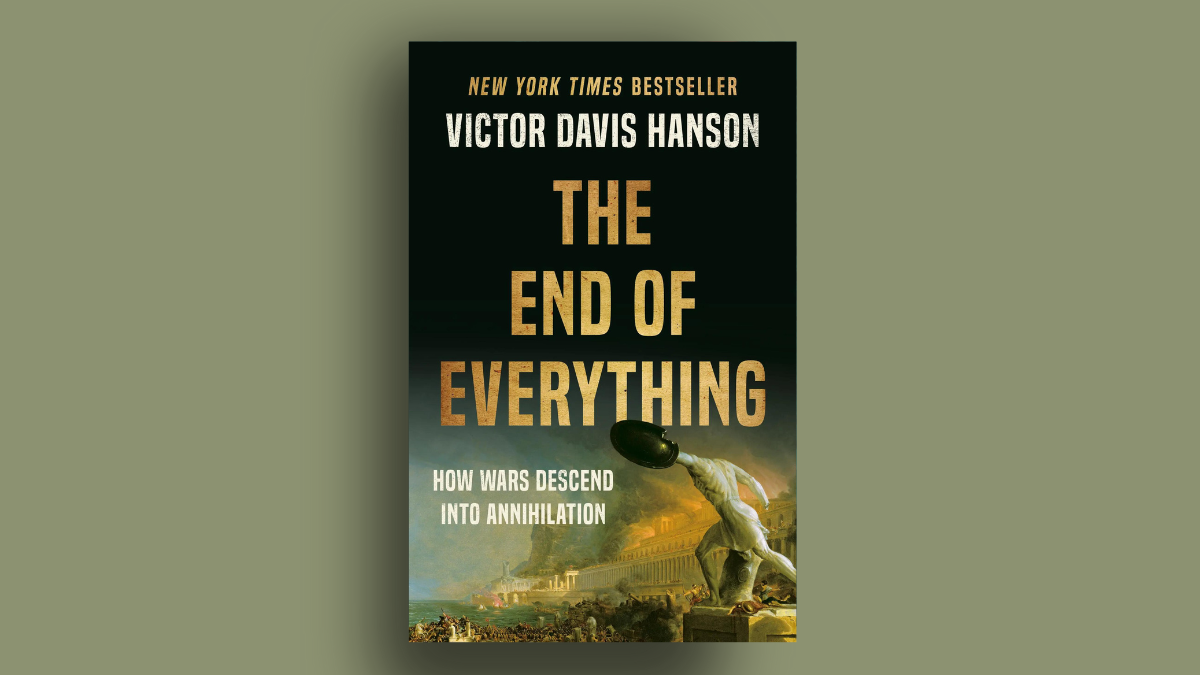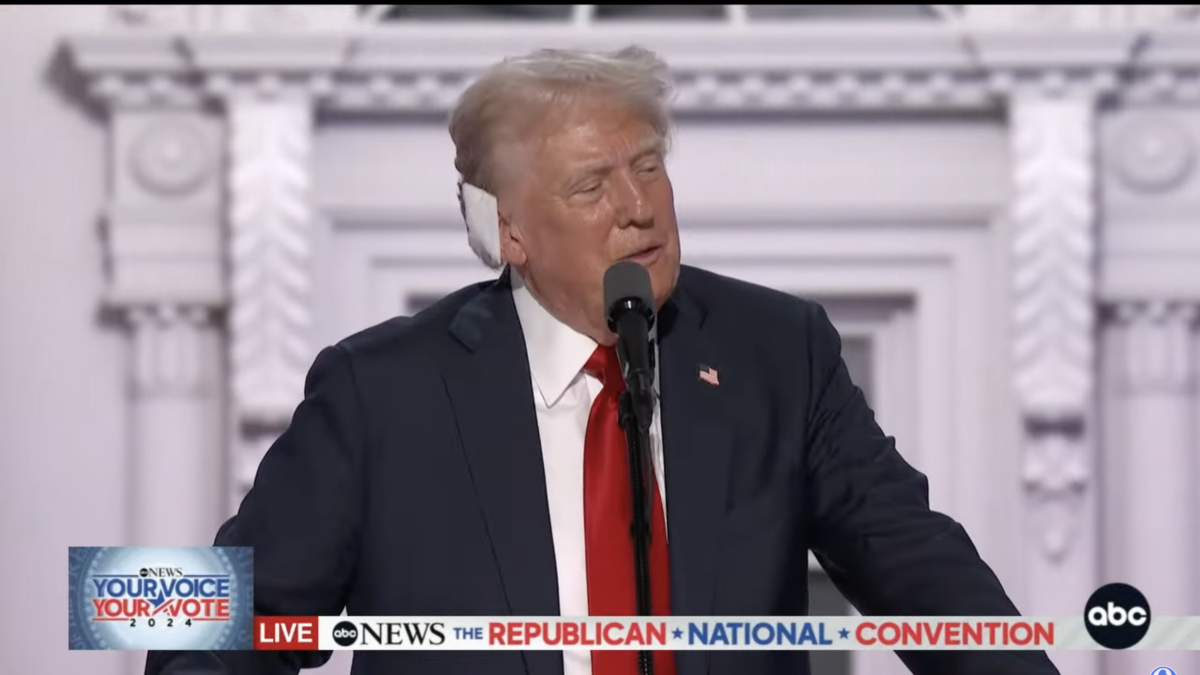
Among the most intriguing of Donald Trump’s utterances was his February 23, 2016, proclamation, moments after declaring victory in the Nevada Republican presidential primary election, that “I love the poorly educated!”
Trump was widely ridiculed for his condescending elocution, which reinforced a sense that this wealthy, white-collar, Ivy League-educated fat-cat sought to exploit the poor, stupid, and downtrodden, greedily reaping their votes while undermining their interests. The candidate defended his outburst as a signal of affection for “real” Americans, not effete, liberal, know-it-all college grads.
Regardless of intention, the Trumpian eruption unwittingly laid bare a fundamental truth about American politics, economics, and culture: Well-educated “winners” in contemporary society have grown increasingly insecure about their accomplishments, fretting mightily about their fragility, hollowness, and sustainability. Meanwhile, those left behind by a globalizing economy nurture resentment over a meritocratic culture that valorizes financial success and credentialism at the expense of fairness and virtue.
Political philosopher Michael Sandel turns his attention to this crisis in The Tyranny of Merit: What’s Become of the Common Good? It is a characteristically learned and thought-provoking exposition of the tension between the haves and have-nots. Urging Americans to eschew “meritocratic hubris” in order to “seek a common good beyond the sorting and striving,” Sandel observes, correctly, that “those who, by dint of effort and talent, prevail in a competitive meritocracy are indebted in ways the competition obscures.”
Yet while Sandel’s examination crackles with insight, his proposed solutions are surprisingly thin and unconvincing. Even so, his analytical framework provides an important scaffolding for creative proposals to enhance higher education through a return to classics, moral reasoning, and core knowledge; to spur technical and vocational training for those not attending four-year colleges; and to improve the workplace experience of those who Trump calls “poorly educated,” including through apprenticeships.
Sandel’s Problems With Merit
What’s so bad about merit, anyway? After all, if the American project is dedicated to anything, it’s to the notion that anyone, no matter his background, can and will rise to the top of a fair economic and political system that furnishes citizens with radical equality of opportunity.
Sandel, a longtime professor at Harvard – where I studied under him – arguably America’s most prestigious institution of higher learning, advances two principal critiques.
First, under conditions of rampant inequality and stalled mobility, he claims reiterating the message that we are responsible for our fate and deserve what we get erodes solidarity and demoralizes those left behind by globalization. Second, insisting that a college degree is the primary route to a respectable job and a decent life creates a credentialist prejudice that undermines the dignity of work and demeans those who have not been to college.
Unpacking these claims and examining their implications requires careful consideration.
First, arguing that even a perfect meritocracy can conflict with notions of justice, Sandel postulates that success in our society derives as much from serendipitous, God-given talent as from hard work and striving. After all, he argues, “many basketball players practice as hard as Lebron [James], but few can match his exploits on the court,” nor does gold-medal sprinter Usain Bolt have a reputation for training especially hard.
Yet Sandel’s undue focus on the unique case of extreme athletic success, where physical gifts often outstrip advantages conferred by training, obscures the vast majority of a meritocratic system, where the consistent practice of virtues like hard work, integrity, humility, thrift, and self-restraint frequently trumps natural talents.
Similarly, Sandel invokes philosopher John Rawls’s assertion that dedication and striving derive from unearned dispositions (“even the willingness to make an effort, to try, and so to be deserving in the ordinary sense is itself dependent upon happy family and social circumstances”), and any success fueled by those traits must necessarily be shared with less fortunate members of the polity. While some environments are certainly more congenial than others to the cultivation of virtues such as gratitude, grit, and perseverance, any American family, rich or poor, possesses the capacity to instill these values in their children, and individuals who have internalized and leveraged them do, in fact, deserve their rewards.
At times, Sandel waxes nostalgic for aristocracy, where inequality results from random and undeserved differences, unlike meritocracy, where favored positions are earned. Citing Michael Young, the British sociologist and author of the 1958 The Rise of the Meritocracy, Sandel claims that “being clear-eyed about the moral arbitrariness of one’s rank [in an aristocratic regime] has a certain advantage; it prevents both the winners and the losers from believing they deserve their lot in life.”
By contrast, Sandel asserts, under meritocracy, the less fortunate reckon they deserve their poor status in life because of their relatively scant talents and therefore despair of ever improving their station. The dispiriting effect on the losers defeats the meritocratic game in its entirety. (Sandel’s analysis of Protestant theology evinces a similar wistfulness for early, undistilled Calvinist strains that relied entirely on grace, not on works.)
Yet for all of meritocracy’s flaws, no one in his right mind would ever wish to restore an aristocratic system, and for good reason: Subjects in a calcified, dynastic, hierarchical regime have no incentive to better their lot, or the lot of others, because their station has been predetermined for all time.
Moreover, Sandel bemoans the chorus of U.S. presidents since Ike Eisenhower who’ve invoked some version of the message that “America is great because America is good.” Mischaracterizing this sentiment, which Ronald Reagan and Hillary Clinton alike have employed, as “providential,” Sandel maintains it rests uneasily, and perhaps irrationally, on divine faith.
But being and doing good entails far more than devotion to God: it requires ethical behavior of the highest caliber and abiding by well-worn standards of hard work, self-restraint, and selflessness. Indeed, Reagan attributed American success to “our faith in God and the bedrock values that follow from that faith” (emphasis added).
Thus, Sandel’s critique of merit requires a very narrow definition—the attainment of superficial monetary or political success or renown, not recognition or appreciation of the development and deployment of a robust set of values and virtues. “The more we think of ourselves as self-made and self-sufficient,” Sandel argues, “the harder it is to learn gratitude and humility. And without these sentiments, it is hard to care for the common good.”
Yet, this formulation puts the cart before the horse, because true merit cannot be achieved without learning and demonstrating gratitude and humility.
College Blues
Sandel’s second critique, in which he confronts his own field of higher education, lands more solidly. Colleges have utterly failed to meet their solemn, even sanctimonious, promise to level the economic playing field.
According to Sandel, more than two-thirds of Ivy League students hail from the top 20 percent of income earners, while Yale and Princeton universities boast more students from the top 1 percent than from the bottom 60. Harvard, Yale, and Princeton were no more likely to admit working-class or poor students in 2005 than they were in 1954. Asserting that “colleges have practiced what amounts to affirmative action for the wealthy,” Sandel observes that “higher education has not provided a significant counterweight to the rising inequality of recent times.”
Even as cutthroat competition among applicants for a proportionally shrinking number of spots has intensified, the value of this degree has been grossly exaggerated in absolute and moral terms. Sandel contends that “elites have so valorized a college degree – both as an avenue for advancement and as the basis for social esteem – that they have difficulty understanding the hubris a meritocracy can generate, and the harsh judgment it imposes on those who have not gone to college.”
Sandel values academic achievement but seeks to temper its excesses. This is in contrast to more radical thinkers such as Fredrik DeBoer, whose recent book The Cult of Smart shakes the very edifice of competitive educational outcomes.
Noting that all 100 U.S. senators and 95 percent of members of Congress have college degrees, Sandel astutely observes that “governing well requires practical wisdom and civic virtue – an ability to deliberate about the common good and to pursue it effectively. But neither of these capacities is developed very well in most universities today, even those with the highest reputations.” This may be the understatement of the year, as contemporary American liberal arts colleges and major research institutions alike lavish far greater attention and resources on social justice and identity politics than on imprinting virtue on impressionable minds and souls.
So how can the four-year college experience be upgraded? Sandel suggests a lottery to assign slots in America’s most prestigious colleges. Every year, some 40,000 high-school seniors apply for admission to uber-selective schools like Harvard and Stanford, but such institutions admit only 2,000 students to their incoming first-year classes—an acceptance rate of 5 percent, requiring the Herculean task of drawing hairsbreadth distinctions between supremely qualified applicants. Sandel proposes an initial quality screen to cut the group in half followed by a lottery that would award the 2,000 spots at random.
This suggestion, while interesting, suffers from too many flaws to be effective. First, it simply redraws the same problematic line in a different place, as admissions committees at elite schools will still face the impossible task of distinguishing between the lucky 20,000th student who’ll make the cut and the unfortunate 20,001st soul who won’t.
Second, the lottery ignores geographic, ideological, and racial-ethnic diversity, which many policymakers may appreciate but isn’t tenable in contemporary society. Sandel proposes awarding minorities additional lottery “tickets”—a provision certain to inflame racial and ethnic tensions by making explicit what is widely assumed to already be standard practice among admissions officers.
Third, the arrangement ignores the very inequality issues Sandel purports to address, as, statistically speaking, privileged, wealthy applicants will thrive even more in a lottery than under the current system while the left-behinds, unable to stand out among the crowd as overcoming poverty or other great difficulties, will fall farther behind.
Finally, expanding such a lottery beyond a single school would multiply these problems, as some qualified students would, randomly, be admitted to multiple schools while others, equally randomly, would gain entry to none.
Attaining True Merit
To understand how higher education might truly be improved, it’s worth first exploring another serious flaw in contemporary academia.
In Sandel’s telling, colleges today “place relatively little curricular emphasis on moral and civic education, or on the kind of historical studies that prepare students to exercise informed practical judgment about public affairs.” This observation is undoubtedly correct, yet Sandel diagnoses the causes as the proliferation of “value-neutral social sciences” and “narrow, highly specialized courses.”
This is perhaps a highly sanitized, vaguely suggestive, and even embarrassingly tepid criticism of a hardening culture of extreme leftism on campus, where ethnic studies of all types have supplanted classics and critical race theory has become unquestioned (and unquestionable) dogma.
But a full-throated lambasting of collegiate wokeness-industrial complex would be far too perilous for a good liberal like Sandel, who should appreciate all too well the dangers of abandoning the kind of soul-nourishment that a classical education furnishes, as Harvard notoriously did in 2009 when it scrapped its core curriculum.
Indeed, the most popular course in that curriculum was Sandel’s moral reasoning course, entitled “Justice.” Every year, more than 1,000 Harvard undergrads thronged Sanders Theater, the largest space on campus, to hear Sandel expostulate on Mill, Kant, and Bentham’s conceptions of the good and the just.
But no longer: Harvard replaced the core curriculum, which had encompassed courses on the Great Books, ancient civilizations, and art and architecture, with a lifeless “general education” program that has foundered. To restore both the grandeur and the efficacy of undergraduate education, four-year colleges ranging from elite schools like Harvard to state behemoths to tiny liberal-arts institutions must return to the classics, as well as to the very methods and lessons of moral reasoning that Sandel so excels at imparting. Higher ed cannot shy away from seeking to instill virtue in its students, for only down that path lies true merit.
Indeed, numerous longitudinal studies have identified critical skills and attributes nourished by core, classical, liberal-arts education. One such analysis by faculty teaching core courses at Columbia University, Yale University, and the University of Chicago found that “the habits of critical analysis, complex thinking and self-reflection cultivated in these courses provide a key resource for subsequent professional and personal development.”
They also concluded that “the benefits that flow from a liberal arts core experience are especially significant for those students whom higher education has historically failed,” as evident in a close study of a newly implemented core curriculum at the University of Texas at Rio Grande Valley.
Along these lines, author, poet, and attorney Reginald Dwayne Betts recently inaugurated the Million Book Project, which aims to install “curated 500-book literary time-capsules” to some thousand prisons and juvenile detention centers around the United States. A convicted felon and graduate of Yale Law School, Betts discovered the classics while incarcerated and seeks, as he told economist Russ Roberts on his EconTalk podcast earlier this year, to ensure access to our literary treasures for those behind bars. If convicts stand to benefit handsomely from our classical tradition, then college students should all the more so.
In addition to moral and philosophical reasoning, the American college must do a better job of bestowing upon its students hard, concrete, functional knowledge and serve as far more than a mere finishing school.
Calling elite academic establishments “sorting machines,” Sandel locates them at the “apex of the emerging hierarchy of merit.” Graduates of elite colleges secure high-paying jobs after graduation not because they necessarily learn more than their state-school peers but “because employers have faith in the sorting function these colleges perform and value the meritocratic honor they bestow.” Goldman Sachs and McKinsey valorize Princeton grads largely because they graduated from Princeton, not because they obtained certain unique knowledge or values there.
Bryan Caplan has extensively explored this sorting function, which he refers to as “signaling.” “The labor market doesn’t pay you for the useless subjects you master,” Caplan, an economist at George Mason University, wrote in a widely circulated 2018 essay in the Atlantic entitled “What’s College Good For?” Instead, “it pays you for the preexisting traits you signal by mastering them.” Decrying the “credentialist arms race” launched by contemporary academia, he argues that at least half of the financial reward bestowed by a college degree can be attributed to signaling.
Caplan’s research found that fewer than one-third of college graduates were proficient at reading (reading!), while a fifth were at “basic” or “below basic” levels. A mid-1980s Harvard study found fourth-year students faring no better than first years on basic quantitative reasoning questions. And the list goes on.
Caplan’s principal solution—bolstering vocational education—rings true, as explained below, but what about the supposedly meritorious students at top schools who would, ironically, be left behind? To thrive in today’s world, those students, too, deserve and need broader and deeper immersion in hard science, math, and data, and schools must improve their general offerings and requirements in this area, too.
The Importance of Vocational Training
Even if Sandel’s admissions lottery may be logistically impossible, he nevertheless correctly notes it would “summon [the] chance to chasten merit’s hubris” by “dismantling the hierarchy of esteem that accords greater honor and prestige to students enrolled in name-brand colleges and universities than to those in community colleges or in technical and vocational training programs.”
Indeed, promoting occupational and community college education would go a long way toward valorizing underappreciated work, as governors like Bill Haslam have done with Tennessee Promise, a program that since 2014 has offered all residents of the Volunteer State two years of tuition-free education at community colleges or technical schools.
Such programs aim to enhance skills among the left-behinds and prepare them for participating in the modern labor force, and they’ve become extraordinarily popular: Tennessee Promise saw more than four times as many applicants as the state’s education commission had expected. “I can’t emphasize enough to anybody who’s not in the middle of these economic development conversations how much it has changed,” Haslam told Politico last year. “Literally it is all about workforce development.”
Moreover, vocational and technical training confer many additional advantages. “Higher education,” Haslam insisted to Inside Higher Ed in 2014, “does have a function beyond just having more people walk across the stage with a sheepskin.” A 2001 study conducted by researchers at Australia’s Griffith University found “long-term benefits in job-search self-efficacy” and enhanced “self-esteem and confidence levels” among unemployed workers undergoing occupational training.
The European Union in 2016 concluded that such training “offer[s] an opportunity to upgrade ones’ skills and competence and to achieve work-relevant qualifications for a varied target group.” Vocational education can help cultivate the same kinds of virtues—dedication, restraint, honesty, humility—that those in elite schools should be imbibing.
Yet how others regard and valorize technical and occupational schooling must change, as well. “Learning to become a plumber or electrician or dental hygienist,” Sandel implores, “should be respected as a valuable contribution to the common good, not regarded as a consolation prize for those who lack the SAT scores or financial means to make it to the Ivy League.”
In much of Western Europe and Israel, where I reside, vocational education occupies a place of pride alongside other forms of higher education; recent EU polling found nearly twice as much support for prioritizing occupational training as for university education. The United States needs to do far more, though. According to Isabel Sawhill of Brookings, the federal government spends more than $160 billion per year supporting college students through grants, loans, and tax credits, but barely more than $1 billion on career and technical education.
Spiraling administrative budgets and faculty salaries buffeted by the gale-force winds of federally subsidized student loans have sent tuition soaring to atmospheric levels. There are outliers, like Purdue University in Indiana, which under the presidency of former governor Mitch Daniels has kept in-state tuition under $10,000 for the past seven years running, but tuition and fees at most four-year colleges have skyrocketed (a trend likely to worsen if President Biden succeeds in realizing his stated goal of forcing taxpayers to assume certain forms of student debt). In this light, programs like Tennessee Promise are legitimate bargains, as the price-tag for community colleges and technical academies remains a fraction of four-year colleges.
Restoring Merit in the Workplace
But what about those left behind by a global economy and unable to take part in two or four-year college, in higher education or vocational training? For these workers, Sandel implores policymakers to consider not just distributive justice but contributive justice—“an opportunity to win the social recognition and esteem that goes with producing what others need and value.” He articulates an appealing utopian vision of Americans “developing and exercising their abilities in work that wins social esteem, sharing in a widely diffused culture of learning, and deliberating with their fellow citizens about public affairs.”
While deeply appealing, this idealization isn’t likely to be realized by Sandel’s thin policy suggestions. One proposal involves lowering or eliminating payroll taxes and replacing them with new taxes on wealth, consumption, and financial transactions, as many liberal Democrats have recently urged.
But even under the rosiest assumptions, payroll tax cuts favor workers in the short-term while eroding their longer-term safety net; wealth taxes are certain to slow growth, thus weakening the prospects of the working poor; consumption taxes tend to be deeply regressive; and financial transaction taxes will dampen entrepreneurship and harm the pension funds on which many workers rely.
Sandel also approvingly cites the work of center-right economist Oren Cass, who in his 2018 book The Once and Future Worker called, among other things, for instituting a wage subsidy. Cass makes a compelling case for a more worker-centric approach to economics, but as I’ve argued elsewhere, his program suffers from certain flaws that traditional policies—such as major infrastructure projects to spur the economy—avoid.
There are alternatives, however. In addition to the oft-cited “success sequence”—finish high school, land a job, get married, then have children, in that order—the “left-behinds” can benefit from programs like apprenticeships, which offer great promise. Finding that apprenticeships offer “opportunities for adults to re-skill and upskill,” a comprehensive 2018 OECD report examined several such programs around the world and concluded that “high-quality apprenticeships where apprentices develop useful occupational skills, which are reflected in credible qualifications, will lead to good employment outcomes.”
The Urban Institute’s Robert Lerman, a longtime advocate for expanding apprenticeships in the United States, calls them “the most cost-effective investment the government can make to raise the skills and jobs of American workers.” He argued in a 2019 study of a Georgia program that “youth apprenticeship teaches the technical and noncognitive skills that provide a foundation for long-term career success across a wider variety of careers.”
Apprenticeships enjoy the additional advantage of cross-ideological support, sparking enthusiasm from the Center for American Progress to Sen. Marco Rubio, R-Fla. to former Wisconsin Gov. Scott Walker to the Trump Department of Labor. They also more than pay for themselves: according to Washington State’s Workforce Board, taxpayers receive nearly 40 times what they spend on apprenticeship programs. Organizations like the American Institute for Innovative Apprenticeship seek to render the practice as widespread in the United States as it is abroad.
Ultimately, Sandel deeply believes that “a renewed debate about the dignity of work would disrupt our partisan complacencies, morally invigorate our public discourse, and move us beyond the polarized politics that four decades of market faith and meritocratic hubris have bequeathed.”
Such a debate, which Sandel helpfully broaches in The Tyranny of Merit, entails hard work, careful thinking, and ideological compromise, as well as plausible policy solutions, which, unfortunately, Sandel fails to provide. While by no means panaceas, solutions like a renewed commitment to traditional learning in higher education, enhanced vocational and technical training, and apprenticeships can help invigorate the discussion Sandel seeks while infusing both highly-skilled and less-skilled U.S. workers with the combination of marketable talents and moral virtues that constitute true merit.









